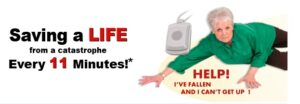Heart Rate Variability or (HRV) what is it and why isn’t your doctor talking about it?
In this blog post, we’re gonna talk about Heart Rate Variability and why it is a missing piece to your health.
In a prior post Are You a Dysfunctional Breather I briefly mentioned HRV so in this post I want to dive a little deeper to tell you more about it and how you can use it to help with your recovery and daily stress levels.
What exactly is HRV?
Heart rate variability is the time between the actual heart beats. This is easily measured with a consumer device that clips onto your ear or finger tip.
At rest a high HRV is favorable, this means greater variability between beats. This signals that the body is recovered and has the ability to tolerate greater levels of stress. A low (poor) HRV is a signal that the body is under stress either from exercise, illness or psychological events.
“HRV can be used as a daily check-in with the body to determine its readiness to tolerate stress on a given day. In this regard, HRV is commonly used to optimize and individualize training programs based on a person’s’ readiness or recovery state.”-Elite HRV
HRV and breathing are linked to the autonomic nervous system which I discussed in my previous post (Click Here to read).
The autonomic nervous system is tied to many biological events including cardiovascular health, blood sugar regulation, blood pressure, digestion and other stress and recovery systems.
So why care about HRV?
If you are under stress (physical or emotional) your body is dealing with several biochemical events that happen without you knowing. If you don’t deal with them they can lead to premature aging, poor energy, cognitive decline and lack of general clarity.
Poor HRV is linked to 9 of the 10 leading causes of death in the US, including
- Heart Disease
- Cancer
- Chronic lower respiratory disease
- Stroke
- Alzheimer’s
- Diabetes
- Influenza and Pneumonia
- Nephritis (Kidney disease)
- Suicide
The 10th one, not related to HRV is car related deaths.
So why isn’t your doctor talking about this?
I think the biggest reason is there is not a gold standard to compare against like heart rate or blood pressure. HRV is relatively easy to measure however it can vary day to day as well as time of day.
What we do know is that you can train and improve HRV which is the big takeaway.
Many of us go numb to the daily stressors just thinking it is part of life. Overtime they can rob us of our mental clarity and overall health.
We do have options when it comes to responding to stress. We can learn to control our responses and not “react”. (You can read more here).
By using a device to measure HRV you can work to control your response to stressful situations. Experts recommend dealing with the stress when you feel it come on vs. waiting until your evening yoga session. One of the easiest ways is to focus on your breathing (I give tips on this here.)
As you move into a state of coherence and work to shift your thoughts from anger and anxiety into positive emotions like gratitude and appreciation you will notice that your HRV pattern shifts from erratic to rhythmic smooth rolling hills. You will also gain greater clarity and sense of calmness when your breathing is slow and controlled.
Next actions: If you don’t want to purchase a device to measure HRV then I recommend spending 3-5 minutes several times a day doing the deep breathing exercises I talked about here.


